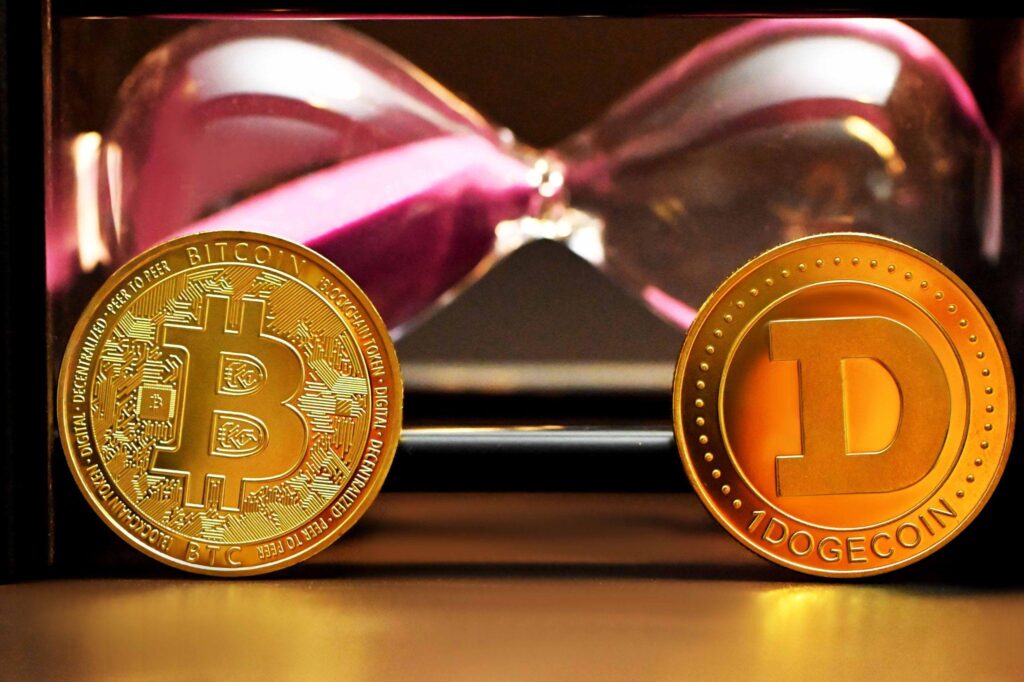The worlds of bitcoin and video games are becoming more intertwined. The “play to earn games” combo, often known as “web3,” has the ability to bring in a new generation of gaming experiences based on real-world economics and new player incentives. As a result, the gaming industry’s current corporate structures may be radically altered.
That is, if the traditional platform gatekeepers in the gaming business chose to open their doors. Many of them are now closed, relegating best play to earn games to dark corners of the internet, and it’s unclear what it will take to persuade the industry’s most powerful firms to adopt this new technology. Meanwhile, the blockchain gaming sector has become one of the fastest-growing segments of the gaming industry, with no signs of stopping.
Play to earn games were originally created for quarter slots and arcades and were pay-to-play. We now have play to earn games, which profit via an in-game economy of digital items — Fortnite dances and Genshin Impact skins, for example — that is completely controlled by the developer, thanks to decades of invention and pioneering business tactics. Learn more simple guide about play to earn games.
Play to earn games, on the other hand, are a whole new paradigm, centered on the idea of generating real-world value from in-game objects and other forms of digital products using non-fungible tokens, cryptocurrencies, and other blockchain technology.
If this tendency continues, it might pave the way for the much-desired metaverse that so many social media and gaming businesses seem to be chasing. Mark Zuckerberg predicts that the future metaverse’s virtual fashion sector might be worth a billion dollars.
Cryptocurrency is set to revolutionize the gaming business. At first appearance, these play to earn games seem to be the next big thing in the non-fungible token world, as crypto enthusiasts, companies, and investors apply the non-fungible token concept to a wide range of digital assets.
The idea is simple: instead of buying a game outright or investing money in a free-to-play title, you would be paid to play it, with built-in incentives to compensate for your time and typically a little financial stake in the company that produced it.
A player may acquire unique commodities with verifiable ownership by playing this kind of game, which can then be swapped, bought, or sold. Because these items have unique IDs that ascribe a variable value to them, similar to a limited-supply commodity or piece of art, the blockchain and NFT components come into play.

The Pokémon-like play to earn games platform platform Axie Infinity, whose parent business was valued at $3 billion earlier this month following a series B led by Andreesen Horowitz, is an example of this. These gaming NFTs are akin to those generated from digital artwork, trading cards, or other types of online collectibles that have been caught up in this year’s crypto gold rush in that sense. Gaming NFTs, on the other hand, cause havoc with present game economies, some of which already allow real-world trade of in-game goods (though many game makers forbid it).
The matter has gotten out of hand since Valve entered the debate earlier this month. The company, which owns the biggest PC gaming marketplace in the world, quietly issued a ban on “blockchain-based applications that issue or enable the sale of cryptocurrencies or NFTs.” The corporation, which is known for its secrecy, made no more comment on the matter.
A ban on blockchain technology on Steam nearly ensures that play to earn games will never be released to the general public, at least not in the foreseeable future.
Because no company has yet developed a mechanism for distributing such software through Apple or Google’s app stores, there are few other options for reaching new players besides sideloading on Android or traditional desktop apps, both of which require players to go out of their way to find the game.
Apple and Google have not made such game-playing for the purpose of earning money illegal. However, Axie Infinity is currently unavailable on mobile app stores, while the game’s creator wants to make it available in the coming months.
The video game industry has been split by Valve’s decision. Epic, ever ready to disrupt its rivals, stepped in and said that it would push blockchain gaming, despite CEO Tim Sweeney’s warning only weeks before that NFTs and similar ideas were ripe for fraud.
Epic is open to “innovation in the domains of technology and money,” as well as blockchain-based rewards for games that “comply with relevant laws, disclose their conditions, and be age-rated correctly,” according to Sweeney.
Valve has now received a letter from a collection of blockchain and non-traditional gaming companies begging with the company to reconsider its decision. Despite a number of confrontations over the years, Valve has yet to provide an official remark on the topic, despite the fact that the corporation seldom speaks out on policy or moderation problems.

Play to earn games that include blockchain technology and web3 token-based technologies like DAOs and NFTs may enhance user experience and open up new economic opportunities for both users and producers “According to the letter.
In some form or another, the rise of NFT gaming is unavoidable. The issues today are how big the market can go without the help of conventional platform providers like Apple, Google, or Valve, and how it will appear in a gaming environment where even Epic, who has announced its support for blockchain in gaming, isn’t using NFTs in its own products.
Axie Infinity is a fantastic representation of where things could be headed in the near future. The game, which is being developed by Sky Mavis in Vietnam, features a convoluted economy centered on two currencies that are used to produce new “Axies,” which are basically fictitious creatures that are maintained on the blockchain and are comparable to Pokémon. You may get these currencies by beating Axies or selling the ones you currently have.
The revolutionary game structure of Axie Infinity has effectively propped up a completely new cryptocurrency, which is presently expanding swiftly and rewards those who spend hundreds, if not millions, of dollars in its ecosystem.
It’s easy to see why investors are interested. According to Drake Star Partners, NFT-related projects received $1.8 billion of the $9 billion in private capital acquired in the first nine months of 2021. Every day, it seems like new companies are sprouting, money is pouring in, and more established companies are joining the NFT and blockchain gaming bandswagon.
Axie represents a new generation of play to earn games in which creators are driven by a desire to establish an open, free market economy in which players can freely join and depart, rather than by fear “Arianna Simpson, a general partner at Andreessen Horowitz, stated earlier this month. “With the game’s increasing popularity and profitability, the new idea allows players to really control aspects of the game and earn from their efforts.”
Blockchain technology, especially NFTs, is destined to become enmeshed in the gaming industry in the future. However, in an industry already plagued by unethical commercialization and addictive gaming mechanics, there is legitimate concern about whether such ideas should be fully applied, with little to no regulatory oversight or study. Not to mention the scams, fraud, and other financial hazards that come with dealing with volatile cryptocurrencies, which may make or break large fortunes in a matter of hours.



